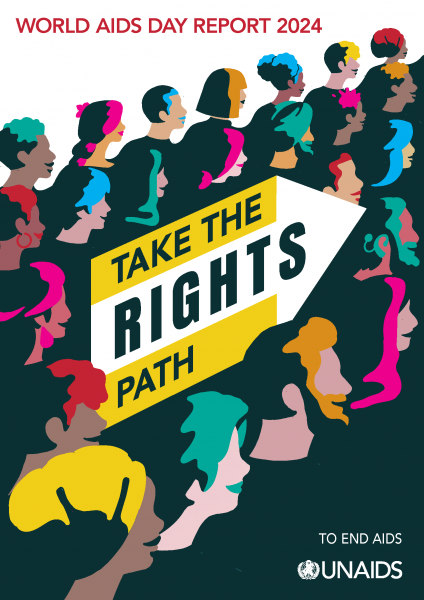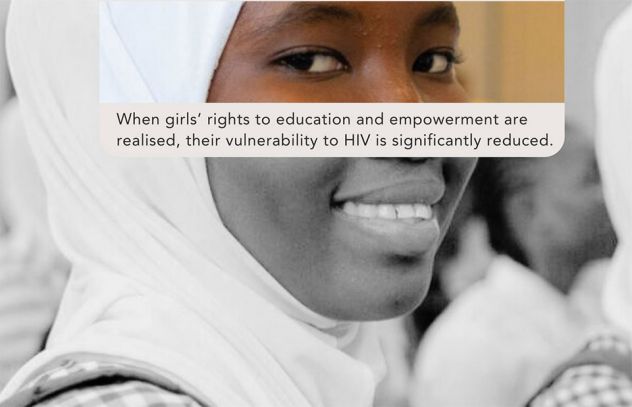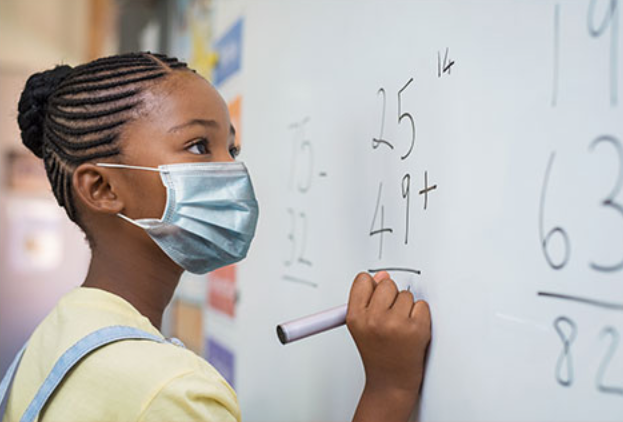Four weeks before the African Cup of Nations football tournament kicked off it was down to the wire. José Fardon, a Côte d’Ivoire web designer and digital developer, had his whole team frantically working on a special edition of an interactive health and HIV game app, called "A l'Assaut du Sida", ‘Tackling AIDS’ (AADS) to coincide with the tournament.
The UNAIDS team had secured funds for the latest rendition of the online game and had rallied UNICEF and the Global Fund to chip in.
“We had launched various versions of the game in the past, but this required a different look and feel to gel with the sporting event,” said Mr Fardon, founder of SYL.
They also needed a final approval from the National AIDS Programme (PNLS).
"Out of the many initiatives put forward ahead of the CAN, the online app really appealed to us because we knew it would not only reach the target audience, it would also make an impact,” said Eboi Ehui, PNLS Coordinating Director. “This is a generation that has never seen the ravages of AIDS so they have felt like it isn’t a problem but it is.”
The success was beyond anyone’s expectations.
The 20,000 tournament volunteers recruited by the Ministry of Youth not only played the online game themselves but they fanned out around the stadiums promoting the game by sharing the QR code with the hundreds of thousands of supporters. And with various prize giveaways during the tournament and afterwards, more and more people downloaded the app to play. Since mid-January 2024, AADS has reached nearly 200,000 adolescents and young people with the latest version reaching a lot of young boys and men (cumulatively, the three versions have reached almost 300 000 people.)
“When I think back, this idea germinated in 2016 as a tool for schools then was launched at the Francophonie Games a year later but now, we really brought it to the general public,” Mr Fardon said. “I am so proud we never gave up.”
His determination impressed more than one person.
In eight years, he convinced UNAIDS staff, the country’s Ministry of Health in close collaboration with PNLS, the Ministry of Education, the Ministry of Youth and countless partners on the ground.
UNAIDS Country Director Henk Van Renterghem, like his predecessors before him, saw the value and potential of using digital technology to reach adolescents and young people. “General knowledge about HIV and overall comprehensive sexual education has decreased and young people are struggling with so many choices that this easy to download game is without a doubt relevant,” he said.
In July 2023, he explained, the National AIDS Council was alerted by the results of a survey and beseeched HIV partners to step up communication and education efforts.
“Despite the fact that young people have more access to information through the internet and social media than ever before, many young people are struggling to make informed decisions about their sexual relations,” said Mr Van Renterghem. For example, the survey revealed that only 40% knew that medicine (anti-retroviral treatment) existed for HIV and 39% of girls (29% of boys) did not know that condoms prevented HIV transmission. Last year, 20% of new HIV infections in the country were among 15–24-year-olds, according to government data.
As a result, UNAIDS staff along with SYL, vetted and increased the number of questions expanding prevention info.
He and his staff were particularly happy because they also succeeded in expanding the scope of the content.
In went the fact that people with HIV on effective treatment can achieve an undetectable viral load and cannot transmit the virus (U=U) plus stuff about stigma & discrimination, human rights, gender equality and gender-based violence – all structural drivers of HIV.
The full game of 400 questions is like a quiz with additional information popping up. Players score points by advancing through 40 sets of ten questions. At least seven correct answers are needed to advance to the next level. It can take up to an hour to get to the last round and when the updated pilot was tested in October and November of 2023, young people responded well.
Two of the young players who scored in the best percentile agreed.
“The game really taught me a lot. There are a lot of facts about HIV and sexually transmitted diseases,” said Marie Koffi. For Wilfried Touré he said, “I learned a lot of things that I had no idea about from tuberculosis to HIV and even on a personal level I picked things up.”
Going forward national partners now want to distribute a scholastic version of the game to all Côte d’Ivoire schools.
During the final awards ceremony at the end of March, Côte d’Ivoire’s Minister of Health, Pierre Dimba, was clear. “This fun and educational online game is a response to young people's need for true and accurate information via social media,” he said. “The popularity of this game among teenagers is a real testimony that adapting our communication strategies to the habits and needs of young people pays off.”
In Mr Van Renterghem’s mind, Côte d’Ivoire should be proud.
“This home-grown low-cost tool will help us sustain our HIV prevention efforts as international funding will inevitably dwindle.”
That is in part why Mr Fardon and UN partners are dreaming even bigger.
“We would like to launch the app-based game in neighboring countries and eventually roll this out throughout western and central Africa,” he said.
“The sky is the limit.”





